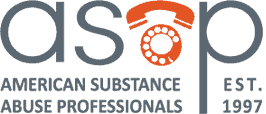In recent years, Americans have begun, justifiably, to recognize the complex public health problem of opioid misuse and associated overdose deaths as a national crisis. Unfortunately, as is often the case when a tidal wave of worry about a particular health issue engulfs the nation, other similar concerns are often swept out of public consciousness.
Take alcohol misuse, for instance. Although alcohol arguably presents a greater threat to public health than opioid misuse, it has in many ways been overlooked in the recent national conversation about substance use disorders.
Alcohol misuse occurs when a person drinks in a manner, situation, amount, or frequency that could cause harm to that individual or those around them. The data and statistics on alcohol misuse, paint a clear picture of the continual threat alcohol poses both in the United States, and internationally.
In the U.S. alone, one in ten deaths among working-age adults are due to alcohol misuse, and more than 88,000 people die from alcohol-related causes each year—making it the third leading preventable cause of death.
Alcohol misuse costs the U.S. nearly $250 billion per year in health care and criminal justice expenditures, lost workplace productivity, and other costs. Meanwhile, in 2016 an estimated 14.6 million American adults had alcohol use disorder.
Alcohol use disorder encompasses a range of symptoms, with varying severity, from mild disordered use to addiction. Despite its prevalence and impact, only a fraction of individuals with this disorder seek or receive professional help, and fewer still receive behavioral therapies or medications that have been demonstrated effective through rigorous scientific research. In part, this is because patients and their families don’t know the range of treatment options available, and don’t know how to search for treatment providers who offer good quality care.
Some might be scared away from seeking help because they believe that it means having to “go away to rehab” or “quit drinking altogether, forever.” In fact, there is a broad menu of evidence-based treatment options accessible online and in person to facilitate different drinking goal choices and aid in decisions about quality of life, whether it is to reduce alcohol, or stop completely. For some individuals, they will need life-saving medically supervised “rehab” style detoxification, stabilization, and to abstain completely. For others, they may be able to moderate their drinking at home, with the help of family and friends.


